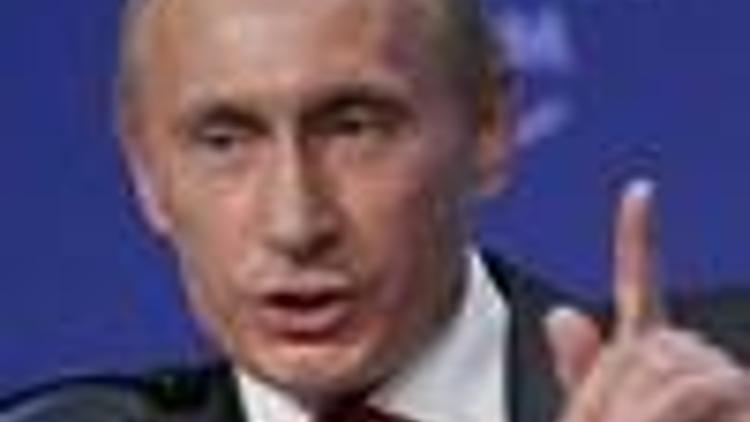Chinese, Russian leaders blame U.S. capitalist excesses for crisis
Güncelleme Tarihi:

Chinese and Russian leaders Wen Jiabao and Vladimir Putin hit out at U.S. capitalist excesses for sparking the economic crisis as the Davos political and business summit made a gloomy start.
Chinese premier Wen said the "blind pursuit of profit" had led to the worst recession since the Great Depression as he opened the World Economic Forum late Wednesday. �
Putin said "this pyramid of expectations would have collapsed sooner or later. In fact it is happening right before our eyes."
Wen blamed "inappropriate macroeconomic policies of some economies" and "prolonged low savings and high consumption," in a barely veiled attack on the United States.
He blasted the "excessive expansion of financial institutions in blind pursuit of profit and the lack of self-discipline among financial institutions and ratings agencies" while the "failure" of regulators had allowed the spread of toxic derivatives.
The Chinese leader called for faster reform of international financial institutions and for a "new world order" for the economy.
The Russian prime minister followed him to the podium and said the crisis had been a "perfect storm". He also took aim at capitalist excesses.
"Although the crisis was simply hanging in the air, the majority strove to get their share of the pie, be it one dollar or one billion, and did not want to notice the rising wave."
Putin insisted he would not criticize the United States, but added: "I just want to remind you that just a year ago, American delegates speaking from this rostrum emphasized the U.S. economy’s fundamental stability and its cloudless prospects."
Condoleezza Rice, when U.S. secretary of state, gave a speech in Davos last year saying the U.S. economy was safe.
"Today investment banks, the pride of Wall Street, have virtually ceased to exist. In just 12 months they have posted losses exceeding the profits they made in the last 25 years. This example alone reflects the real situation better than any criticism," said Putin.
"The existing financial system has failed. Substandard regulation has contributed to the crisis, failing to duly heed tremendous risks."
Wen said the crisis had posed "severe challenges" for China and that it needed 8.0 percent growth in 2009 to maintain social stability while the International Monetary Fund predicted 6.7 percent for this year.�
Both Wen and Putin called for greater cooperation from new U.S. President Barack Obama in international affairs. But both spoke out against protectionism and said excessive government intervention would harm recovery prospects.
U.S. tensions with China have been raised in recent days with new U.S. Treasury Secretary Timothy Geithner saying Obama believes China manipulates its currency to gain an edge in trade.
"In meeting the international financial crisis, it is imperative for the two countries to enhance cooperation, that is my message to the U.S. administration," Wen said.
Germany's Chancellor Angela Merkel and the British and Japanese Prime Ministers Gordon Brown and Taro Aso -- who have between them spent hundreds of billions of dollars battling the crisis -- were also among about 40 heads of state or government who will speak this week.
But with much attention on Obama’s efforts to get a 825 billion dollar (621 billion euro) stimulus package through Congress and grim new IMF predictions for the world economy, the forum has been a dark affair.
There were plenty of critics among the record attendance at Davos of the measures against the crisis taken so far.
South Africa’s Finance Minister Trevor Manuel said wealthy nations appeared to be adopting a "lemming-like approach, trying to get to the precipice without knowing what their money would buy."
"The crisis is getting worse," said the News Corp media tycoon Rupert Murdoch. "It’s going to take drastic action to turn it around, if it can be turned around quickly. Personally, I believe it will take some time."
The economic turmoil has overshadowed efforts to highlight other key issues at the conference, including climate change, conflicts around the world and poverty alleviation campaigns.
U.N. Secretary General Ban Ki-moon was to speak about the Gaza conflict in Davos on Thursday.

